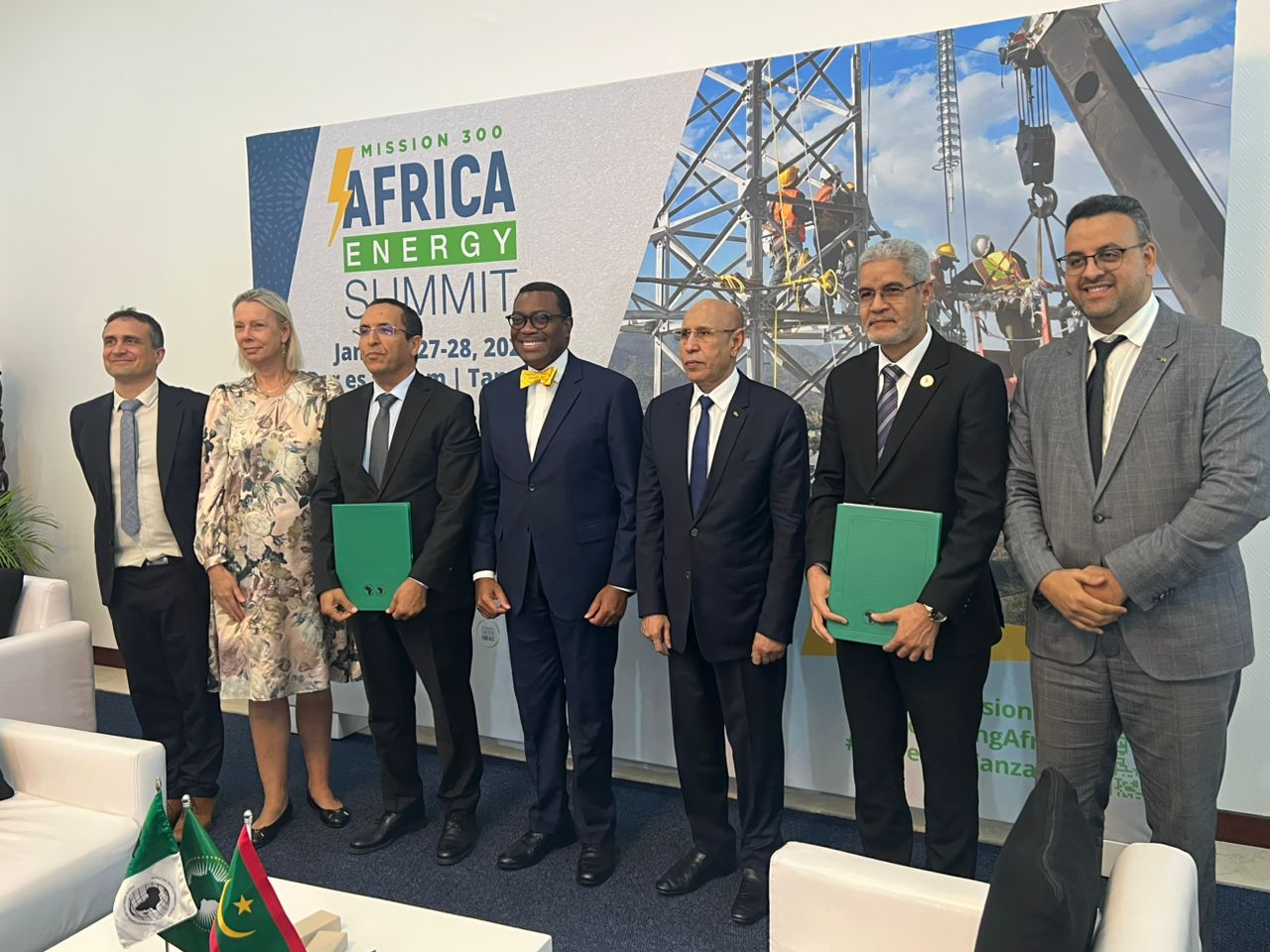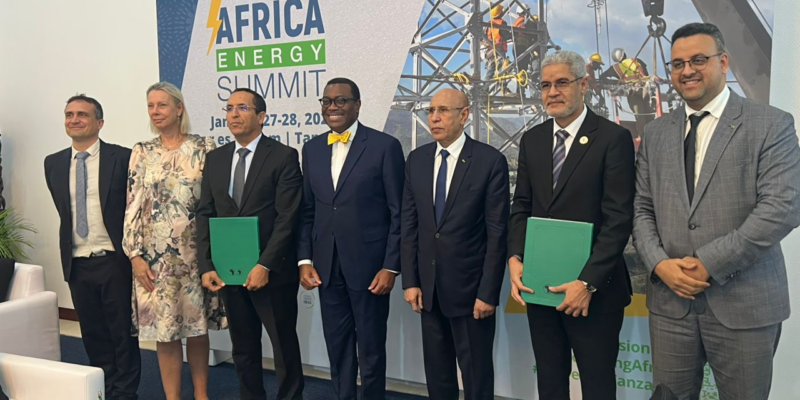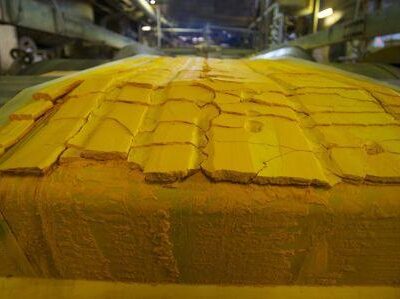
This article is part of a series produced in collaboration with the African Development Bank in light of its sixtieth anniversary. Please visit our dedicated portal to read about the Bank’s history and its activities on the continent.
An agreement signed between the African Development Bank and Mauritania is expected to bring significant improvements to the country’s livestock sector, which accounts for 11% of its gross domestic product.
The agreement, which was signed on the sidelines of the Mission 300 Africa Energy Summit in Dar es Salaam and witnessed by Dr. Akinwumi A. Adesina, President of the African Development Bank Group and His Excellency President Mohamed Ould Ghazouani of Mauritania, will see the bank invest UA18.3m, covering approximately 85.48% of the total project cost of UA21.4m.
Mauritania has one of the largest livestock populations in Africa, with 2.3 million cattle, 14.6 million sheep, 9.4 million goats, and 1.5 million camels. Given the grass-fed nature of production and the unique breed characteristics of Mauritanian livestock, the country’s meat is highly sought after in regional markets. In 2021 alone, Mauritania exported approximately 750,000 heads of cattle, primarily to Senegal and The Gambia, generating around $120m.
Despite this potential, the sector remains constrained by structural inefficiencies that hinder growth, productivity, and competitiveness on international markets. Key challenges include inadequate feed and water resources, poor animal health services, and a heavy reliance on natural pastures that are increasingly under threat from desertification. The lack of modernisation in the sector, coupled with insufficient access to markets and commercial inputs, has led to heavy reliance on imported animal products. In 2021, Mauritania spent approximately $143m on the importation of dairy products, poultry, and table eggs, underscoring the need for a transformative approach to livestock development.
Expected impact
The Awkar Programme, which the agreement brings to life, aims to modernize the livestock sector by enhancing production, improving productivity, increasing processing capabilities, and expanding access to both national and international markets. The project will address critical gaps in livestock management by improving fodder production, enhancing genetic breeding techniques, and bolstering animal health services. In addition, new processing and marketing infrastructure will be established to facilitate value addition, ensuring that Mauritania’s livestock products become more competitive on global markets. Special attention will be given to empowering women entrepreneurs involved in dairy processing, tanning, and leather goods, as well as supporting young people through vocational training and entrepreneurial development initiatives.
The programme’s impact is expected to be far-reaching, affecting 100,440 individuals, including transhumant and agro-pastoral breeders, meat and dairy sector stakeholders, wholesale butchers, and farmers directly. Additionally, approximately 334,178 individuals stand to gain indirectly from the project’s interventions, which also include significant improvements in local infrastructure, contributing to better health, education, and social services for rural communities. “This project will help make local communities more resilient and with the effective new instruments under this agreement, it will contribute directly to the realisation of Mauritania’s development objectives,” said Sid’Ahmed Ould Bouh, Minister of Economy and Finance, who also expressed his appreciation for the partnership with the Bank.
The Bank’s role
The African Development Bank has been instrumental in the Mauritanian government’s livestock sector transformation programme since 2021, providing crucial support at multiple stages of project preparation and execution. The Bank’s initial engagement included conducting strategic studies on the meat and milk value chains to identify opportunities and constraints within the sector. This laid the foundation for the activation of an ADF Project Preparation Facility, which was implemented in partnership with the Food and Agriculture Organization to conduct pre-feasibility and environmental and social safeguard studies for Phase 1 of the Awkar Programme. The investment plan that emerged from this process was subsequently presented at the Dakar Summit in 2023.
Mohamed El Azizi, the Bank’s Director General for North Africa explained the rationale for its involvement.
“This is a very strategic project for the government and people of Mauritania. The idea is really to develop this important potential that exists for farming in Mauritania,” he said, noting that this is only the first level of development for the livestock value chain. “There will be other phases that will come soon, thanks to the development of a strategy for mobilising resources for the entire Awkar programme,” he added.
With the agreement now in place, the Mauritanian government intends to present the Awkar investment plan at the national donors’ round table scheduled for April 2025 in Paris, where it will seek to mobilise additional financial and technical support for the broader implementation of the livestock sector transformation agenda. The overarching goal is to enhance Mauritania’s position as a leading exporter of high-quality red meat while simultaneously developing the milk value chain to reduce dependence on imports. By addressing structural challenges and harnessing the potential of its vast livestock resources, Mauritania is poised to unlock new economic opportunities that will benefit its people and position the country as a key player in regional and international livestock markets, with the support of the African Development Bank.










Comments